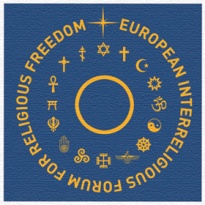Threat of full-face veil to “open, personal relationships” trumps human rights
Vienna, 3 July 2014 - FOREF Europe: By upholding a French ban on wearing full-face veils, the European Court of Human Rights (ECHR) has failed to protect the religious freedom of Islamic women who choose the veil as an expression of their faith, according to the Forum for Religious Freedom-Europe (FOREF), an independent nongovernmental monitoring group.
A French law banning wearing a full-face veil has been in force since 11 April 2011. According to a press release issued by the Registrar of the Court, the ECHR “emphasized that respect for the conditions of ‘living together’ was a legitimate aim” for the French law, given that “the State had a ‘wide margin of appreciation’ as regards this general policy question…”
“By giving priority to a vague social goal over the fundamental human right to manifest one’s religious beliefs, the ECHR has undermined the freedom of religion with this ruling, ” according to Dr. Aaron Rhodes, president of FOREF.
According to the Registry statement, “the Court accepted that the barrier raised against others by a veil concealing the face in public could undermine the notion of “living together”. In that connection, it indicated that it took into account the State’s submission that the face played a significant role in social interaction…The Court was also able to understand the view that individuals might not wish to see, in places open to all, practices or attitudes which would fundamentally call into question the possibility of open interpersonal relationships, which, by virtue of an established consensus, formed an indispensable element of community life within the society in question. The Court was therefore able to accept that the barrier raised against others by a veil concealing the face was perceived by the respondent State as breaching the right of others to live in a space of socialisation which made living together easier.” (emphasis added)
“Living together, in a pluralistic society where individual rights are respected, means tolerating differences, not prohibiting them because others ‘might not wish to see them,’” Aaron Rhodes said.
“Since the Court evidently thinks promoting ‘social interaction’ and ‘easier living together’ is more important than protecting one of the most basic human rights, then we can expect further erosion of respect for other human rights if exercising them is arbitrarily deemed unsocial,” he said.
France was the first country to ban the full-faced veil, followed by Belgium; several European cities have imposed similar bans. In 2010, the ECHR ruled against Turkey, holding that religious garments were not a threat to public order.
Human Rights Without Frontiers, a Brussels-based group also focusing on freedom of religion, noted that the "Observatoire de la laïcité" in France “found that police have issued about 1000 fines since April 2011. About 600 women were concerned by this measure, some getting several fines (one woman got 33).
On 1st July, Michaël Khiri was sentenced to a suspended three-month prison term and a 1000 EUR fine by the Appellate Court of Versailles for violently opposing an identity control of his wife wearing the niqab in July 2013 in Trappes (Yvelines). This incident then provoked several nights of violence.”
FOREF, based in Vienna, was founded in 2005 by former Graz University Rector and Law Dean Christian Bruenner and human rights activist Peter Zoehrer. FOREF has focused largely on monitoring attacks on minority religions and appealing to governments to end discriminatory practices.
For more information:
Aaron Rhodes, president of FOREF Europe: +49-170-323-8314
Peter Zoehrer, Executive Director: +43 6645238794
Vienna, 3 July 2014 - FOREF Europe: By upholding a French ban on wearing full-face veils, the European Court of Human Rights (ECHR) has failed to protect the religious freedom of Islamic women who choose the veil as an expression of their faith, according to the Forum for Religious Freedom-Europe (FOREF), an independent nongovernmental monitoring group.
A French law banning wearing a full-face veil has been in force since 11 April 2011. According to a press release issued by the Registrar of the Court, the ECHR “emphasized that respect for the conditions of ‘living together’ was a legitimate aim” for the French law, given that “the State had a ‘wide margin of appreciation’ as regards this general policy question…”
“By giving priority to a vague social goal over the fundamental human right to manifest one’s religious beliefs, the ECHR has undermined the freedom of religion with this ruling, ” according to Dr. Aaron Rhodes, president of FOREF.
According to the Registry statement, “the Court accepted that the barrier raised against others by a veil concealing the face in public could undermine the notion of “living together”. In that connection, it indicated that it took into account the State’s submission that the face played a significant role in social interaction…The Court was also able to understand the view that individuals might not wish to see, in places open to all, practices or attitudes which would fundamentally call into question the possibility of open interpersonal relationships, which, by virtue of an established consensus, formed an indispensable element of community life within the society in question. The Court was therefore able to accept that the barrier raised against others by a veil concealing the face was perceived by the respondent State as breaching the right of others to live in a space of socialisation which made living together easier.” (emphasis added)
“Living together, in a pluralistic society where individual rights are respected, means tolerating differences, not prohibiting them because others ‘might not wish to see them,’” Aaron Rhodes said.
“Since the Court evidently thinks promoting ‘social interaction’ and ‘easier living together’ is more important than protecting one of the most basic human rights, then we can expect further erosion of respect for other human rights if exercising them is arbitrarily deemed unsocial,” he said.
France was the first country to ban the full-faced veil, followed by Belgium; several European cities have imposed similar bans. In 2010, the ECHR ruled against Turkey, holding that religious garments were not a threat to public order.
Human Rights Without Frontiers, a Brussels-based group also focusing on freedom of religion, noted that the "Observatoire de la laïcité" in France “found that police have issued about 1000 fines since April 2011. About 600 women were concerned by this measure, some getting several fines (one woman got 33).
On 1st July, Michaël Khiri was sentenced to a suspended three-month prison term and a 1000 EUR fine by the Appellate Court of Versailles for violently opposing an identity control of his wife wearing the niqab in July 2013 in Trappes (Yvelines). This incident then provoked several nights of violence.”
FOREF, based in Vienna, was founded in 2005 by former Graz University Rector and Law Dean Christian Bruenner and human rights activist Peter Zoehrer. FOREF has focused largely on monitoring attacks on minority religions and appealing to governments to end discriminatory practices.
For more information:
Aaron Rhodes, president of FOREF Europe: +49-170-323-8314
Peter Zoehrer, Executive Director: +43 6645238794









 More than 100 NGOs and personalities write to French Parliamentarians about the law on cults
More than 100 NGOs and personalities write to French Parliamentarians about the law on cults